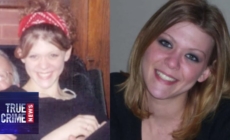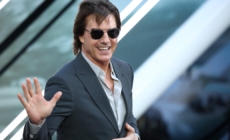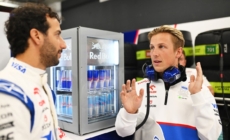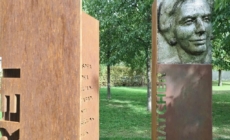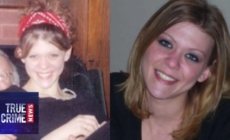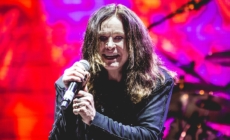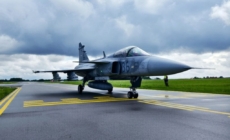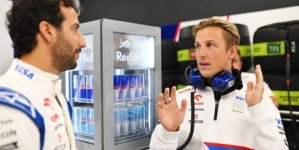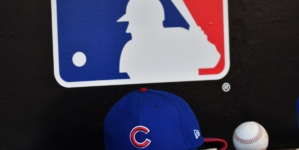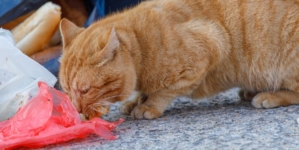-
James Bond fans left confused over new Amazon images - 7 mins ago
-
Dak Prescott Playing Like an MVP While Carrying the Depleted Cowboys - 16 mins ago
-
Woman's brutal killing hidden by trailer park fire - 35 mins ago
-
Cake popularized by Tom Cruise’s holiday gifting is recalled over health concerns - 38 mins ago
-
Liam Lawson opens up on Daniel Ricciardo Support message - 46 mins ago
-
Joel Klatt’s College Football Rankings: Ohio State Continues to Solidify Its No. 1 Spot - 59 mins ago
-
Budapest Statue of Margaret Thatcher Honors the ‘Iron Lady’s’ Legacy - about 1 hour ago
-
Woman's brutal killing hidden by trailer park fire - about 1 hour ago
-
Josh Allen’s Message to Stefon Diggs After Patriots Upset Bills Revealed - about 1 hour ago
-
Ozzy Osbourne considered suicide after botched neck surgery complications - about 1 hour ago
Another dead man, this one on a bathroom floor
Boris Berezovsky, Aleksei Navalny, Yevgeny Prigozhin, Sergei Yushenkov, Anna Politkovskaya, Aleksandr Litvinenko, Natalya Estemirova, Sergei Magnitsky and Boris Nemtsov could all warn of the perils of falling afoul of the Kremlin where Russian President Vladimir Putin wields absolute power. They could if they had not been killed or died in murky circumstances.
In Berezovsky’s case he didn’t die in an Arctic prison, or have his plane blown up in mid-flight, wasn’t gunned down in front of his Moscow home, or murdered gangland-style on a bridge next to the Kremlin, or shot dead execution-style in an apartment building in Moscow, or poisoned with radioactive polonium-210 in London, or abducted and slain near home in the Chechnya capital Grozny, or denied medical care for pancreatitis in pre-trial detention.
On March 23, 2013 Berezovsky, a 67-year-old Russian oligarch forced into exile, died at his ex-wife’s multi-million-pound mansion near exclusive Ascot, ouside London. He was discovered by his bodyguard on the floor of a locked bathroom with a scarf around his neck. Police saw no evidence of a violent struggle or sign of forced entry to the home.
The pathologist who conducted the post-mortem concluded that the injuries were “consistent with hanging”. Another pathologist, a German asphyxiation expert enlisted by Berezovsky’s daughter, disagreed. He testified at the inquest a year later that after examining photographs he saw “the strangulation mark is completely different to the strangulation mark in a hanging”, being circular rather than V-shaped. Also, spots on the skin and eyes were petechiae, a so-called congestion syndrome, consistent with homicidal strangulation.
People had differing opinions. For instance, Berezovsky had been devastated when the British commercial court ruled against him and for fellow oligarch Roman Abramovich in 2012 in the biggest private litigation battle in history. Berezovsky claimed that Abramovich had cheated him out of $5 billion-plus concerning interests in Russian oil giant Sibneft.
Berezovsky, confident he would win, had been shocked by the ruling, it was said, more so because he had been made out a liar than the money aspect, though that stung too. A modest drinker he reportedly began downing a bottle of whisky a day, sometimes chain-smoking and staying in bed longer. There were cash problems and a clinic for depression.
Others said he was full of plans, even writing apologetically to Putin and asking to be allowed to return safely to Russia. He went to Israel for two months as part of his post-court recovery. And suspicions were raised about the ex-Mossad bodyguard, Avi Navama, who had not turned on the security cameras and whose movements had been unusual that day, arriving at the mansion much later than normal. Had he been “got at”?
Whatever Berezovsky’s state of mind, there was no suicide note and it was said he would not hurt his children by ending his life this way. The coroner recorded an open verdict, noting: “It is impossible to say, given the requisite burden of proof, that one explanation holds over another.” The Kremlin naturally talked up the suicide angle.
The death – and the questions still unanswered today – provides the denouement for “The Kremlin’s Noose” by Amy Knight, an authority on Russian politics. Her books are “Orders to Kill: The Putin Regime and Political Murder” (2017), “How the Cold War Began: The Igor Gouzenko Affair and the Hunt for Soviet Spies” (2006), “Who Killed Kirov? The Kremlin’s Greatest Mystery” (1999), “Spies Without Cloaks: The KGB’s Successors” (1996), “Beria: Stalin’s First Lieutenant” (1993) and “The KGB: Police and Politics in the Soviet Union” (1988).
“The Kremlin’s Noose” is an exhaustive account of the rise and fall of post-Soviet Russia’s most influential, and most notorious, oligarch, Berezovsky. Contemporaneous reporting and interviews with his inner circle are set alongside the ugly, villainous career of the man whom he propelled to power but who would become his arch nemesis, Vladimir Putin.
It is a barely credible tale of human degredation. State coffers are robbed for personal interest and ambition in shady financial dealings. Bribes and money-laundering are rife as venal politicians and businessmen stash dirty money in Swiss banks. The oligarchs’ powerful banks and media outlets allow them to shape politics and subvert the constitutional order.
There are connections with gangsters and protection from prosecution. Not to mention the murders, with sidelines of war, apartment building bombings and hostages. This is a Russia horrifying in its sheer greed, for who wants to be left behind in the big money grab?
Right there in the midst of the schemes were Putin and Berezovsky, up to their necks in billion-dollar deals and machiavellian politics. Berezovsky was first a mathemetician who transformed into a businessman and media mogul worth a reported $3 billion by 1997. Slain American journalist Paul Klebnikov dubbed him the “godfather of the Kremlin” for the outsized role he played in Russia after 1991, the year the Soviet Union fell apart.
Berezovsky was a winner, Knight writes, in the grab for the spoils of the former communist state by the men who became oligarchs. He engineered the re-election of President Boris Yeltsin in 1996 and successfully negotiated an end to the 1995-96 Chechen war. “Most importantly, he was crucial in Putin’s rise to be elected Russia’s president in March 2000”.
However, already by August that year when Berezovsky said his final goodbye to Putin at a private meeting in the Kremlin, the oligarch was regretting his support for the Russian leader. Putin had quickly started to dismantle Yeltsin’s reforms and instigated criminal investigations against some of Russia’s top businessmen, Berezovsky included.
The oligarch fled Russia in October 2000 and gained asylum in the United Kingdom, where he devoted himself and his fortune to a highly publicised campaign against the Putin regime. For Putin, Berezovsky was a traitor who had accused him of despicable crimes. “The fact that Putin was indebted to Berezovsky for helping him gain the Russian presidency made Berezovsky even more treacherous to the Kremlin leader,” Knight states. “And Putin has long made it clear that he believes traitors deserve death.” Like Stalin, Putin enjoyed revenge.
The book follows both their careers in the trough of wheeling and dealing. The scams go on and on, too many to mention here but fully detailed by Knight. Berezovsky said early on that “I will not stop until I earn a billion dollars”. In Putin’s case, he began as a nondescript technocrat with security and intelligence agency KGB and evolved to the deputy mayorship of Saint Petersburg, Russia’s largest trading city, where “he found ample opportunities to reap the rewards of the new Russian economy, often by corrupt means”.
One particular eye-opener is that “with the help of Putin’s men in City Hall, the seaport became a major hub for smuggling drugs from Columbia into Western Europe”. Putin became a useful front, appearing to be cleaning up corruption while really bringing it inside, legitimising it and creating a mafia state.
There were no scruples when it came to making money and in 2022 Putin’s personal wealth was estimated at $70 billion to $200 billion. Berezovsky may have elevated him to power from behind the scenes but then he had to conform or be exiled, or worse. The Kremlin demanded his extradition and made bogus criminal charges. Death threats followed.
More compliant oligarchs would make sure that elections in Russia do not matter for the foreseeable future. Berezovsky is dead. Putin festers on. Russians have lost billions of rubles in state assets. Amy Knight is there every step of the way.
Source link


